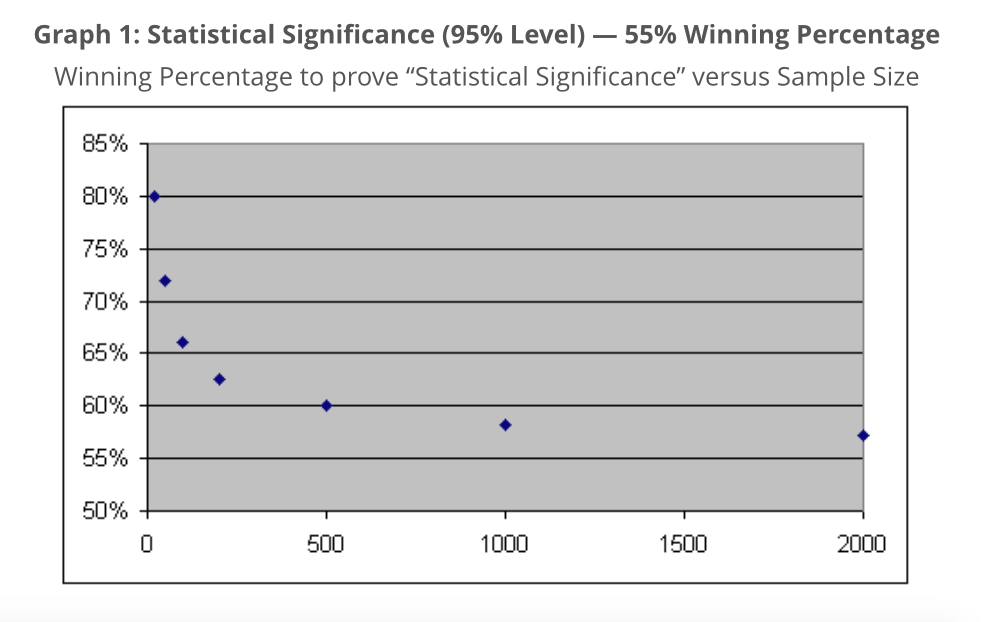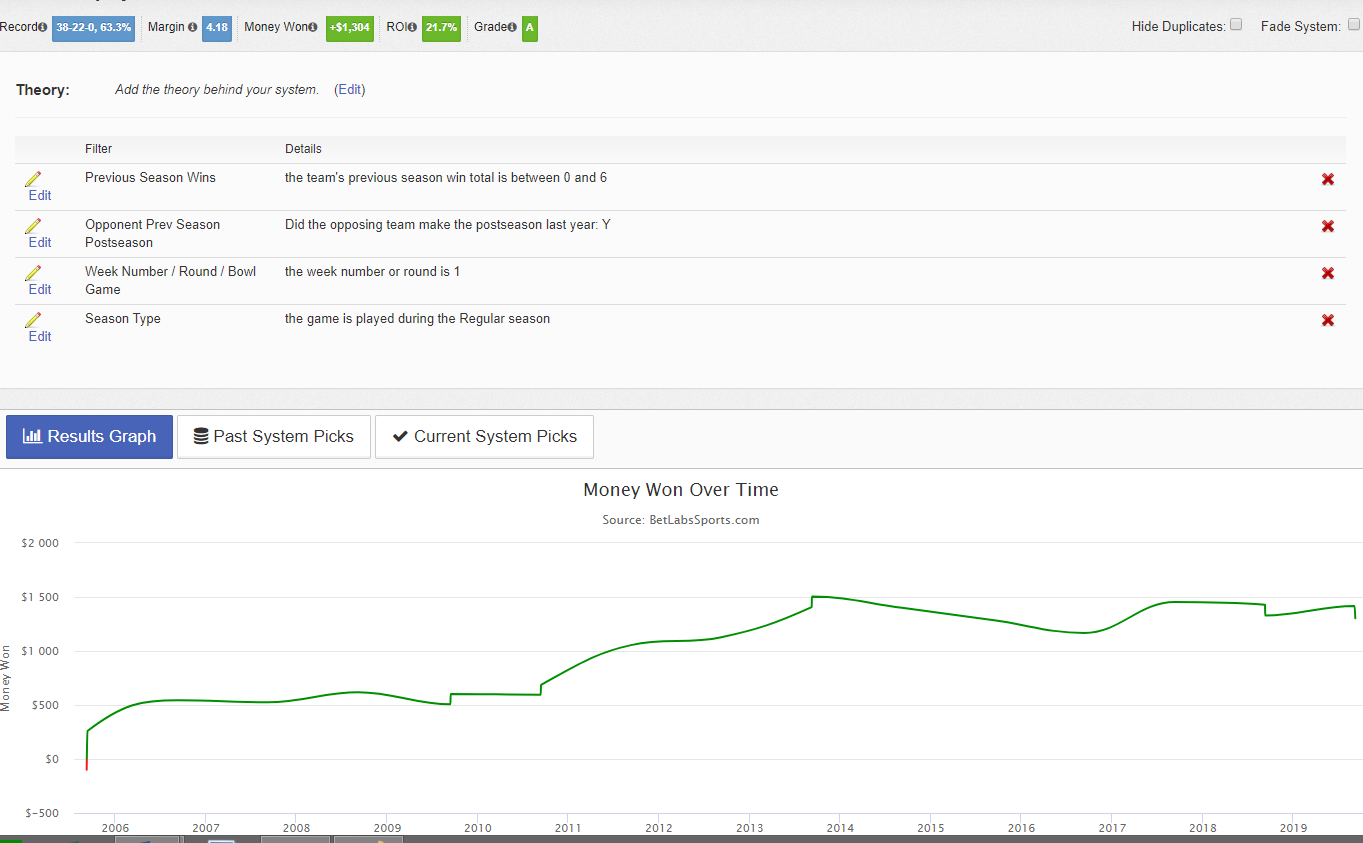With so many filters available in Bet Labs, it's possible to whittle your sample size down to practically nothing without realizing it. This is especially true for the NFL & NCAAF, which have small sample sizes to begin with due to the small amount of games played each year.
There are multiple reasons why you want to avoid systems with small sample sizes.
- Inaccurate Representation - You can make a system with a 15-5 record against the spread, but there's no way that system would sustain a 75% cover rate over a 100 or 1000 game sample. What is the true strength of that system? There's no way of knowing until the sample size grows.
- Not Predictive: Unfortunately, you'll likely find that the winning percentage of your small-sample system drops as the sample size grows larger. In fact, there's a chance that your system has a losing record after it's built, as any system can go on a hot streak over a small number of games. The graph below shows the required winning percentage over certain sample sizes to have a 95% confidence level that the system would win at a 55% rate over the long run.

- Infrequent Matches - Since Bet Labs has data from over the past decade, there are thousands and thousands of games within its database. If you create a system with only a couple dozen matches, you're probably only going to get a few system matches each season. If your system happens to lose a couple of those games, you'll have to wait until next year to regain those profits.
The system below shows what can happen with small-sample systems. When it was built before the 2018 season, it was 33-16 (67.3%). However, it has gone just 5-6 (45.4%) in the two seasons since then.

Perhaps this system will still be profitable in the long run, but the winning percentage over the first 49 games is not an accurate representation of what we can expect in the future.
Comments
0 comments
Article is closed for comments.